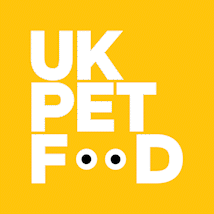With the right care, fish make great pets.
The food you provide for your fish plays a crucial role in their health, happiness, and overall well-being.
There are thought to be over 33,000 different species of fish in the world and around 2,500 in the ornamental fish trade.
Proper feeding practices ensure that your fish receive the necessary nutrients to thrive.
Nutrition & diet
Feeding strategies and nutritional needs vary between this myriad of fish families and species. Whilst this may sound daunting, it is easy to provide good nutrition by following some basic principles:
- Freshwater and marine ornamental fish can differ in their nutritional requirements – some fish have evolved to feed on specific types of foods.
- Fish can be herbivores, carnivores, or omnivores, though the majority of aquarium fish are omnivores.
- Different fish have specific physical feeding needs (or feeding strategies); they can be bottom, middle, or surface feeders or algae grazers and this needs to be considered.
- Most species of fish are unable to make their own Vitamin C and so they must be provided with this nutrient in the diet.
Generally, fish should be fed two to three times daily. Fish will learn the routine and assume it’s feeding time if you are close to the tank!
What to feed your pet fish
Fish in their wild habitats obtain their nutrients through a variety of both plant and animal sources, so here are some nutrition tips to bear in mind:
Fish need specialised food to provide the necessary nutrients
A good quality prepared food will provide fish with a complete and balanced diet including all the nutrients they need.
This will include protein (which supplies the 10 essential amino acids that most fish require), fats (for energy and as a source of essential unsaturated fatty acids), vitamins and minerals.
Complete fish foods will provide essential vitamins
Some ingredients are designed to bring out the natural colour of your fish
Unless there is only one species of fish in the tank, it is very likely that different foods will be needed. Owners will need to consider this when choosing their fish and ask for guidance from the retailer.
Feeding tips for fish

When it comes to how much to feed your fish, always err on the side of caution. Overfeeding is much more common than underfeeding.
A few flakes, granules or pellets per fish is sufficient. The fish should eat all the food in two minutes or less.
Good quality foods use the right ingredients, manufacturing processes, and formulas to keep waste production to a minimum, whilst at the same time, providing the fish with a healthy diet.
Always ask about the specific feeding needs of a fish before purchasing it, as some may have special requirements and you need to consider all the fish in the tank.
Water quality
Due to the waste produced by fish, the quality of the food you give your fish has a significant impact on the aquarium or pond environment and how easy it is to maintain.
Overfeeding results in incomplete digestion of food, which can lead to increased waste excreted by the fish. This, combined with uneaten food, can then pollute the water and necessitate more maintenance to keep the environment healthy.
It's better to underfeed, rather than overfeed, because fish are more susceptible to poor water quality than a lack of food.

